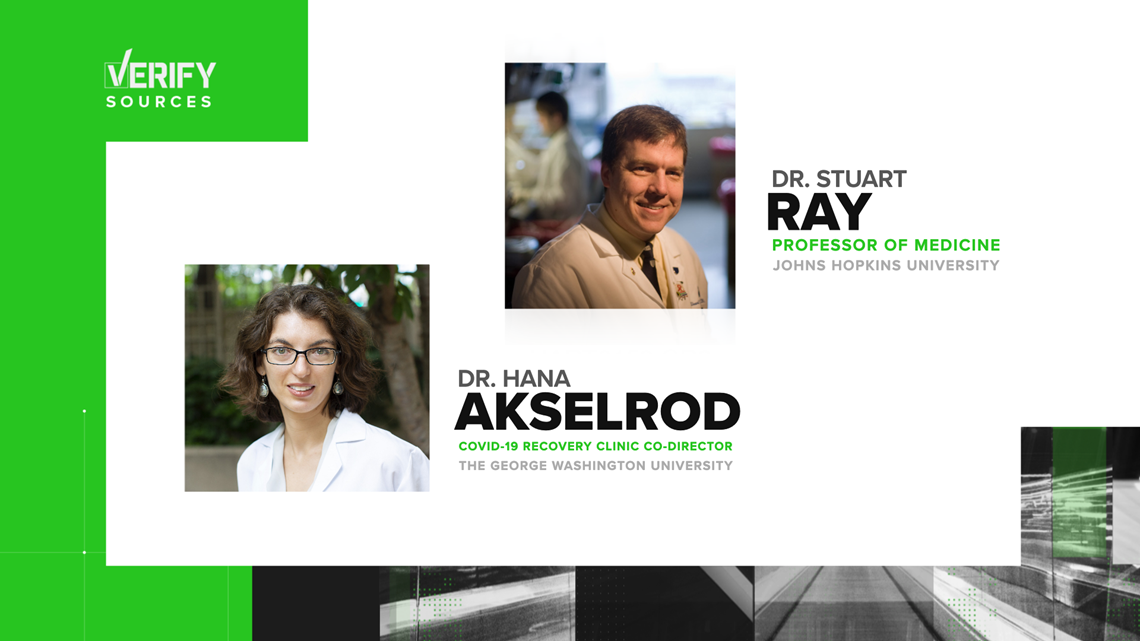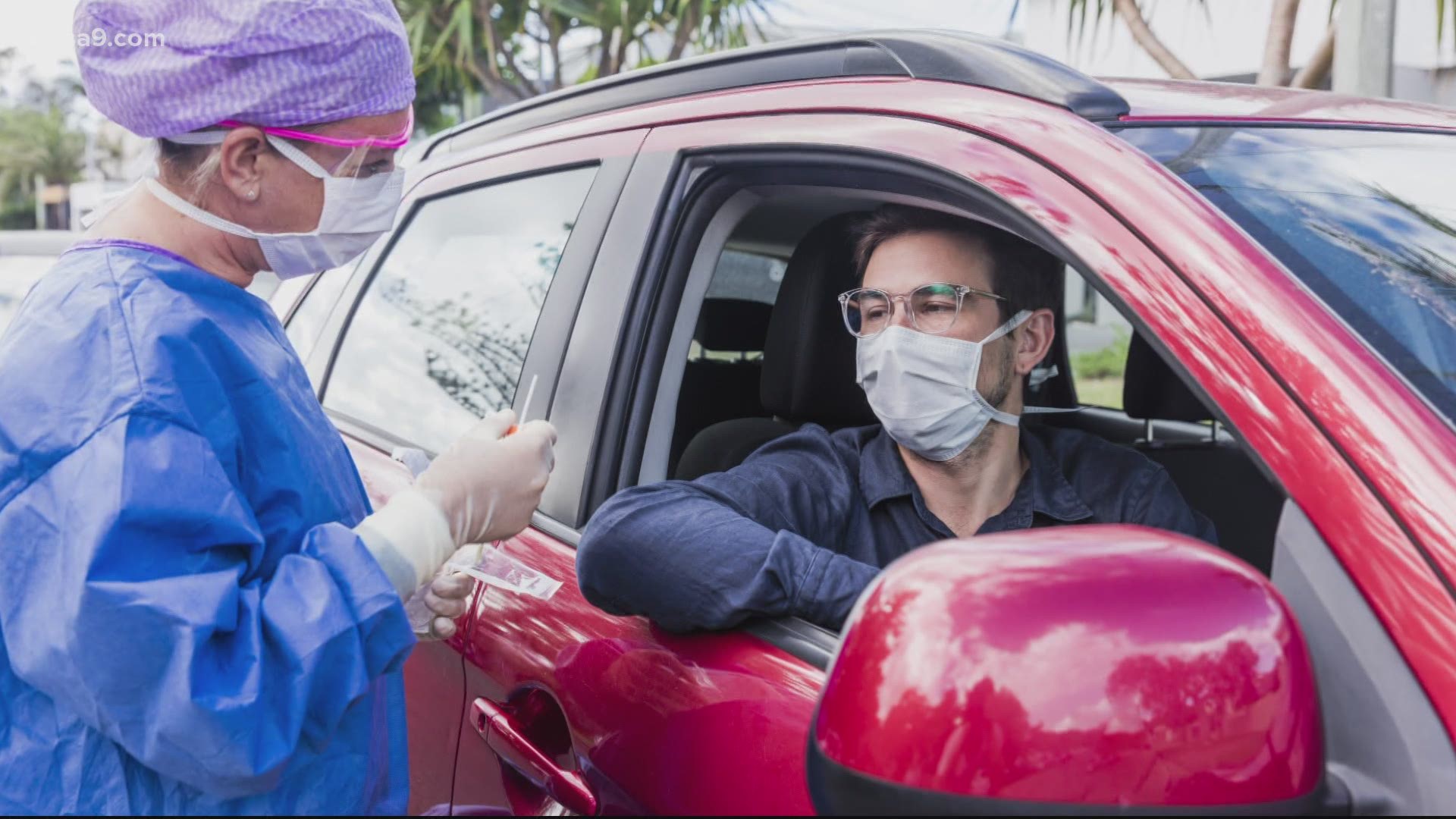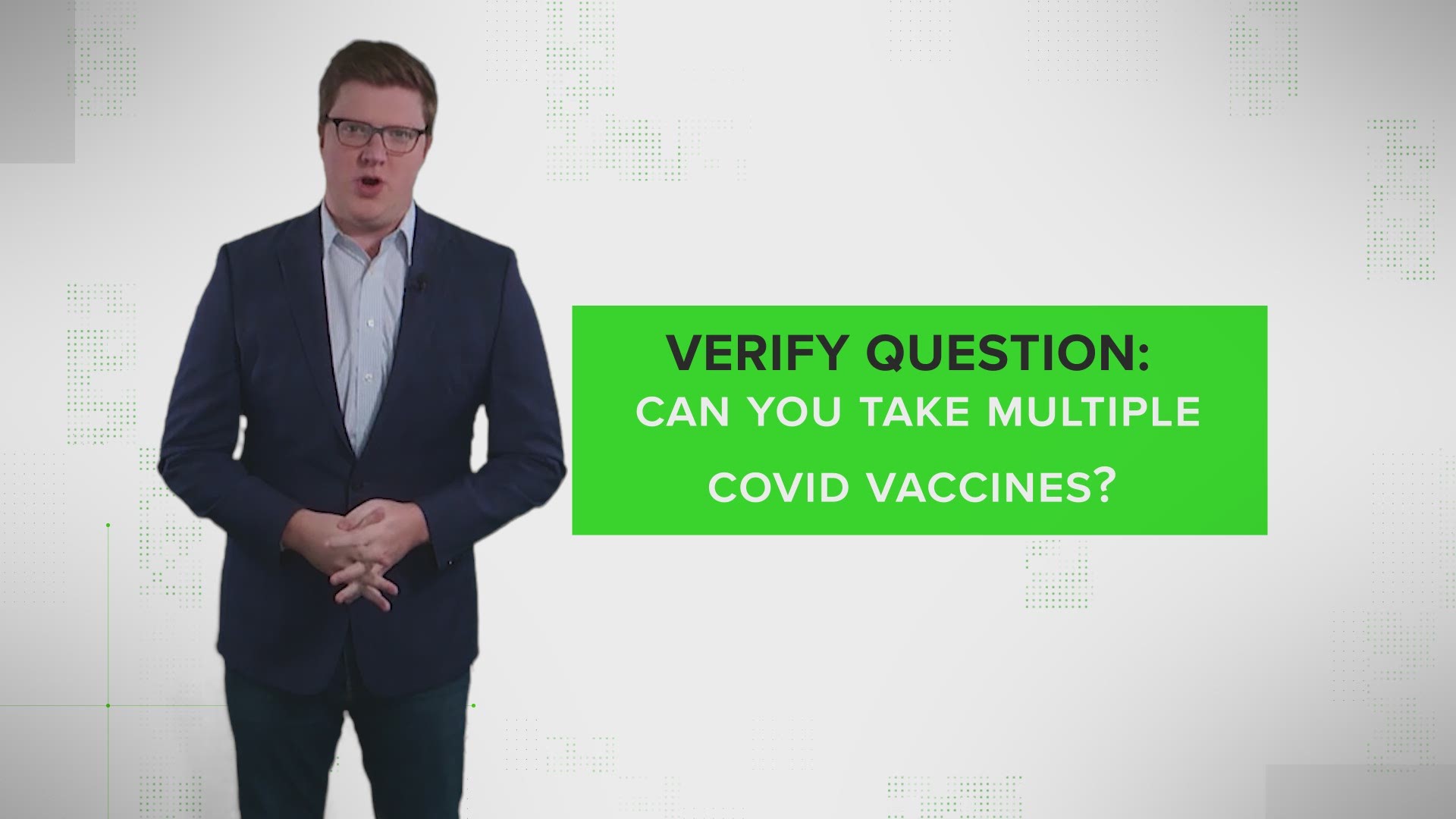WASHINGTON — As of December 7, 2020 the Food & Drug Administration has approved Emergency Use Authorizations for almost 300 different tests, included diagnostic and serology tests.
About two-thirds of those tests are the traditional molecular tests, such as the PCR test, that can be run in a lab in a matter of hours but take a few days to get results.
But only seven antigen tests, commonly referred to as 'rapid tests,' have been granted an Emergency Use Authorization. Those are the tests that can take as little as 15 minutes and can be run without a lab.
For months, antigen tests have drawn skepticism and criticism from the public for producing false results.
Elon Musk publicly questioned the accuracy of antigen tests on Twitter in November.
"Something extremely bogus is going on," he said. "Was tested for covid four times today. Two tests came back negative, two came back positive. Same machine, same test, same nurse. Rapid antigen test from BD."
Musk's tweet drew comments like these:
Search online and you'll find dozens of similar assertions that the antigen test is "known" for less reliable results. So, our Verify team fact-checked the claim.
Are antigen tests less accurate than other tests, like the PCR?
Sources:
Our Verify researchers asked this question to two infectious disease experts:
- Dr. Hanna Akselrod, assistant professor of medicine and co-director of the COVID-19 Recovery Clinic at the George Washington University
- Dr. Stuart Ray, professor of Medicine at Johns Hopkins University.


We found out it's a difficult question to answer without defining the term, "accurate."
"When you ask me whether antigen tests are accurate, are they accurate for what purpose?," Ray said. "And I'll give you some choices."
Here's the list Ray came up with:
- Are they an accurate measure of whether someone's infectious with SARS-CoV-2?
- Are they an accurate measure of whether someone has or recently has had SARS-CoV-2?
- Are they an accurate measure of whether or not a person's current symptoms are from a SARS-CoV-2 infection?
- Are they a good predictor of whether or not this person will be shedding the this virus tomorrow or the next day, because they had an exposure two days ago?
So, our Verify researchers took a step back, starting at the beginning:
What information are PCR tests and antigen tests designed to tell you?
According to the FDA, molecular tests, like the PCR, check to see whether the sample taken from you contains the genetic material of SARS-CoV-2.
Antigen tests are checking for the presence of specific proteins from the virus.
Both are designed to tell you if you have an active infection.
"Whether you do an antigen test or an RNA test, what you're testing for is the presence of the virus," Ray said. "And the tests have different sensitivities, they have different abilities to detect small amounts because what we're detecting is molecules."
Generally, how well do these tests perform? The answer involves statistics.
"When we look at it closely in the math and immunology world, there are actually two metrics we really care about, 'sensitivity' and 'specificity'," Akselrod said.
"A sensitive test is a test that will correctly pick up the greatest proportion of cases of the disease that you're trying to find," she continued.
"So if you're trying to diagnose a disease, you want to not miss any cases. You want to identify and pick out the greatest proportion of the people who have that disease to have a positive test result...the idea of specificity is that you also want this test to accurately identify who does not have the disease. And when you have a disease that's rare, or that's easily confused for other entities, you want to prioritize specificity, you want to test that will not turn positive unless the person really truly has the disease you're looking for."
Basically, is the test sensitive enough to detect COVID and specific enough to determine you actually have COVID and not some other virus.
If either of those is off, you can end up with false positives or false negatives.
Molecular tests are highly sensitive and highly specific, which means you can be pretty confident in the results.
Dr. Akselrod, calls them the 'gold standard.'
Antigen are highly specific, but generally less sensitive than molecular tests, according to the FDA.
The FDA sent a letter in November to lab workers and health care providers, about concerns that antigen tests used in places like nursing homes were yielding false positives.
When the antigen tests first came out in May 2020, the FDA also warned about false negatives.
As our Verify team found out, even if the tests perform really well and even if the tests are handled properly, outside factors like the population being tested, the prevalence of virus in the community, and how long ago a patient contracted the virus, can contribute to false results.
When should you get tested for the most accurate results?
The PCR test is really good at telling you if the virus is in your system. The antigen test, according to Ray, might be more reliable at telling you if you are infectious.
Because antigen tests are less sensitive than PCR tests, Antigen tests work best when you are at the height of your illness, but not as good at the front or end.
Think of it as a curve.
The antigen test should turn positive at the peak of the curve when your viral load is highest, meaning when you have a large amount of virus in you, but it may not turn positive before your symptoms start, or once you start recovering, and you have less virus in you.
That's consistent with what our Verify researchers found in authorization documents provided by the test-making companies to the FDA and the information from the CDC.
"The sensitivity of antigen tests varies but is generally lower than most NAATs," the CDC writes online. "The antigen level in specimens collected either before symptom onset, or late in the course of infection, may be below the limit of detection of virus of the test. This may result in a negative antigen test result, while a more sensitive test, such as most NAATs, may return a positive result."
With either a PCR or antigen test, if you test negative, Ray says that doesn't necessarily mean that you don't have the virus. It could mean you have it, but just got tested either too early or too late.
"None of the tests can really tell us whether this person will be positive a few days from now, because we don't know where they are on these curves, the curve is rising and falling, and if you don't know where you are on that rising and falling curve, then we can't tell what the test means," Ray said.
Because antigen tests are generally less sensitive for the virus, the window to get a true positive result is narrower, Ray said.
So.....Is one test more accurate than the other?
"No, I think it depends on your purpose," Ray said. "If you're asking, 'am I infectious today?' the antigen test in that situation would be more accurate for infectivity. If your question is, 'Do I have the virus in my body?' the RNA test would be more accurate, but it wouldn't tell you whether you're infectious to other people."
Even so, no test is 100% accurate.
"They're just not designed to work that way," Akselrod said. "There are tests that are pretty darn nearly 100 percent accurate, the ones we use in hospitals and medical settings, the molecular PCR tests, and we have the benefit of being able to test and retest and validated against additional methods."
THE BOTTOM LINE
Whether or not a result is a true positive or a true negative boils down to the performance of that individual test, how the test was administered and handled by health care workers and laboratory staff, the timeline of your infection and the population being tested.
There are pros and cons to both diagnostic tests. While PCR tests are considered the "gold standard," they can take longer and oftentimes must be run through a lab.
Antigen tests are generally less sensitive but are cheaper to make, don't require a lab and can be run in a matter of minutes. But if you test negative, your doctor may order you a molecular test to confirm the results.




